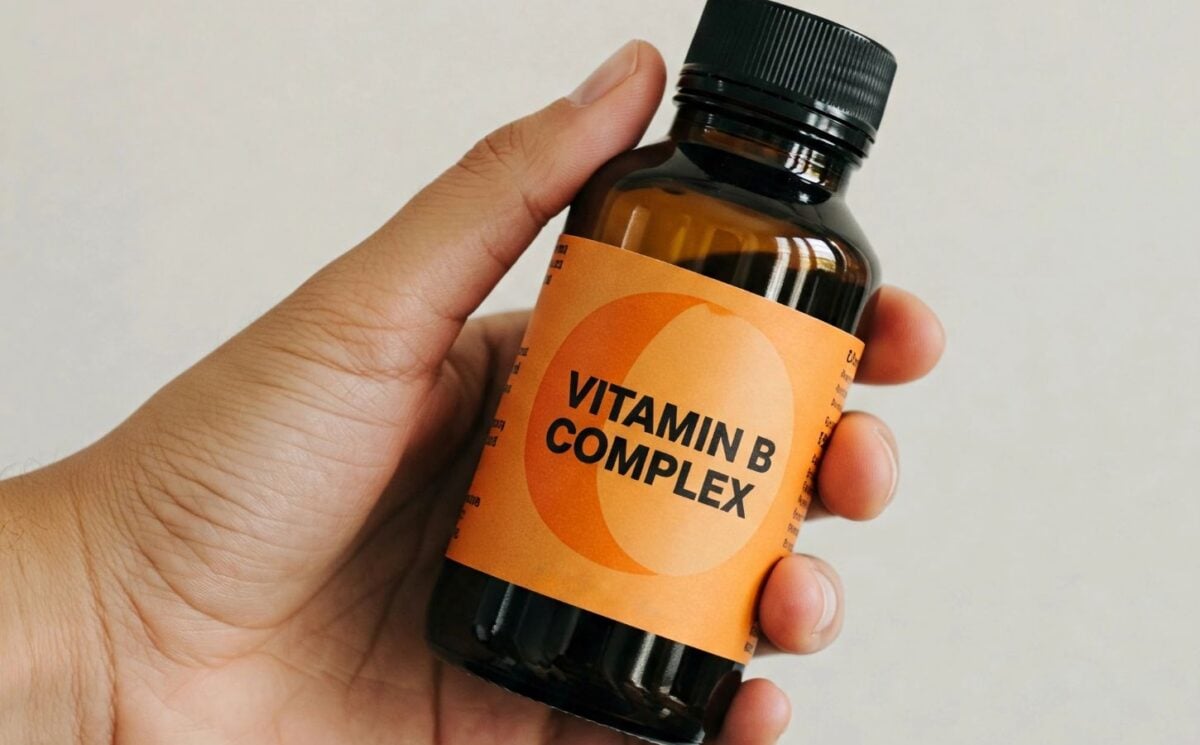If you’ve ever found yourself lost in the vitamin aisle trying to choose the best B12 supplement, you’re not alone. Between methylcobalamin, cyanocobalamin, and a couple of others with equally long names, it can feel more like a chemistry quiz than a health decision. That’s where Plant Based Science London steps in.
The science-focused channel is known for turning dense nutrition studies into short, evidence-packed videos anyone can understand. Rather than pushing health trends or unsubstantiated claims, they focus on what the research actually says and how to use it to stay healthy on a plant-based diet.
Read more: New Cultivated Spirulina Has Comparable B12 To Beef
In one of their latest videos, they tackle the B12 question that confuses just about everyone: which supplement to choose? The team breaks down the four main types, explains what each does in the body, and brings in PCRM’s Dr Michael Greger to reveal the one he recommends and why it’s not necessarily the most high-end option on the market.
Understanding the four types of vitamin B12
Vitamin B12 deficiency isn’t just a vegan concern; it affects nearly 40 percent of the US population. The narrator explains that there are “four main types of B12 – methylcobalamin, adenosylcobalamin, cyanocobalamin, and hydroxocobalamin.”
Methylcobalamin, often seen on supplement labels, is one of the body’s two active coenzyme forms of B12. However, the narrator notes that it’s not the complete picture: “The body has to still convert methylcobalamin into the other coenzyme form called adenosylcobalamin.”
Adenosylcobalamin, the second form, is described as less stable and less effective in tablet form. Still, the narrator mentions that some people “with fatigue issues have reported getting more relief from adenosylcobalamin than either methylcobalamin or cyanocobalamin.”
Then there’s cyanocobalamin, the most studied and widely available type. “Based on many studies, cyanocobalamin has successfully cured vitamin B12 deficiency, and therefore it’s believed that our body can convert it into methylcobalamin and adenosylcobalamin without any problems,” the narrator explains.
The only caution? Cyanocobalamin contains a tiny molecule of cyanide, though the narrator clarifies this is “so small in supplements that it’s thought to be physiologically insignificant.” Only certain groups – such as smokers or those with kidney issues – may need to avoid it.
Lastly, hydroxocobalamin, commonly found in B12 injections and animal products, also requires conversion into the two active coenzyme forms.
Dr Michael Greger’s verdict: Which B12 to take and why
When it comes to choosing the best form, Dr Greger doesn’t hesitate. “I encourage people to choose cyanocobalamin, not methylcobalamin,” he says.
His reasoning is both scientific and practical. “The reason they use cyanocobalamin is [because it’s] more shelf stable,” Greger explains. In contrast, “methylcobalamin is not very shelf stable, and so, first of all, you have to take huge doses comparatively – a thousand a day, not 200 a week.”
He also emphasizes that nearly all the successful studies on reversing B12 deficiency have used cyanocobalamin, not methylcobalamin. “There’s only one study that took vegans who were B12 deficient and tried to reverse their deficiency [with methylcobalamin]… And [for] one of the people, it didn’t even work at all,” Greger says. “They gave him a thousand a day, and it did not reverse the B12 deficiency, and so that’s pretty scary.”
The simplest and cheapest way to stay covered

Dr Greger sums it up with a straightforward recommendation: “I encourage people, probably the easiest way [to get a regular, reliable source of vitamin B12] is 2,500 micrograms once a week.”
He estimates the cost at around five dollars per year, calling cyanocobalamin the easiest, cheapest, and most reliable form.
For those who follow plant-based diets and anyone unsure about their B12 levels, the takeaway from the video is clear: don’t overcomplicate it. A simple, affordable supplement can help prevent deficiency and keep the nervous system and red blood cells healthy.
As Plant Based Science London’s mission suggests, understanding nutrition doesn’t have to be overwhelming – sometimes, the smartest choices are the simplest.
For more plant-based nutrition and health videos, check out Plant Based Science London’s YouTube channel.
Read more: Vitamin B12: The Ultimate Guide For Vegans And Vegetarians






